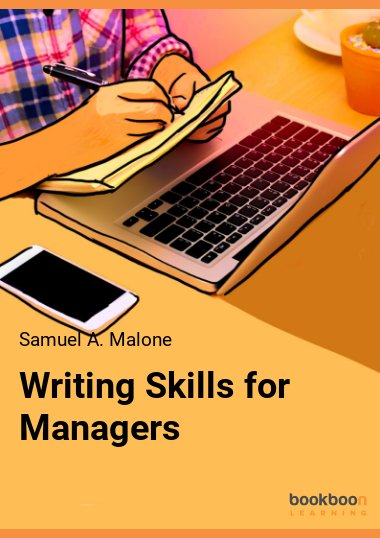In our business and personal lives, we write memos, letters, job applications, reports, newsletters, forms, minutes of meetings, emails and texts. Ambitious managers may write an academic thesis and assignments. Writing is therefore an important part of a manager’s life. Despite this few of us get any formal training in the art of writing. This book hopes to fill this void. In any field of business, writing is important, and people are often passed over for promotion because they lack writing skills. One’s whole career may depend on the quality of your writing.
About the author
Samuel A Malone is a self-employed training consultant, lecturer and author. He is the author of 21 books published in Ireland, the UK and abroad on learning, personal development, study skills and business management. Some of his books have gone into foreign translations and second editions. He has an M.Ed. with distinction (in training and development) from the University of Sheffield and is a qualified Chartered Management Accountant (ACMA), Chartered Global Management Accountant (CGMA) and a Chartered Secretary (ACIS). He is a fellow of the Irish Institute of Training and Development (FIITD).

